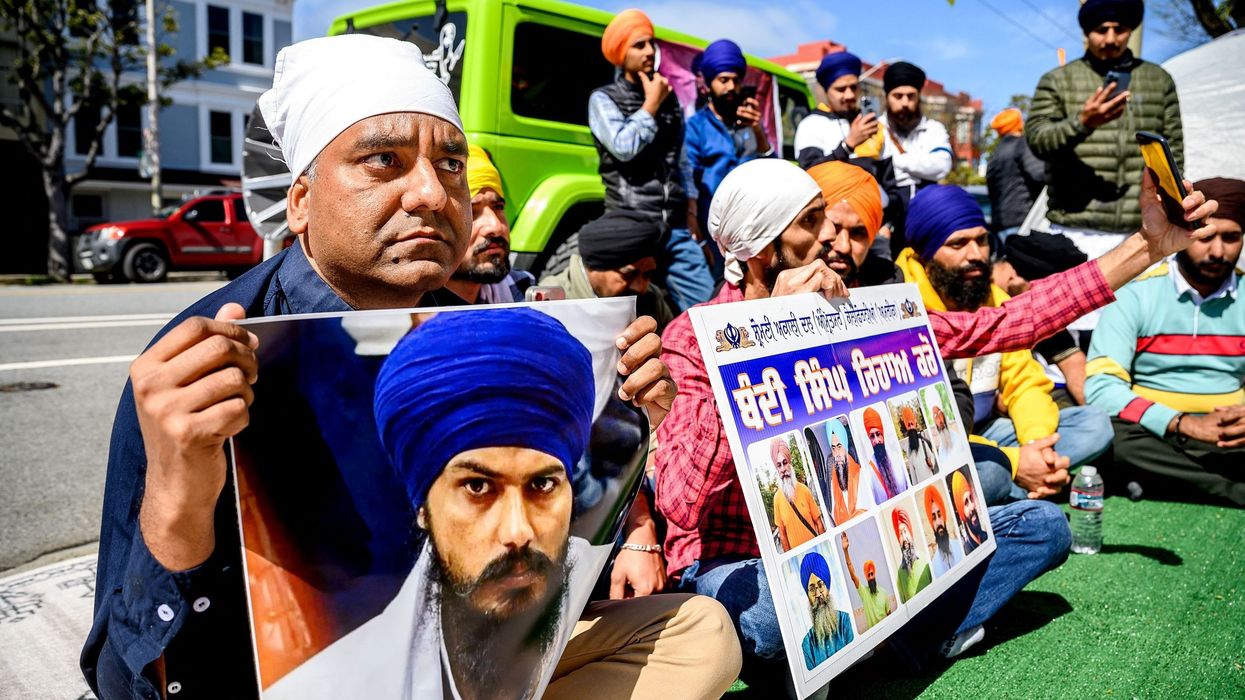The police in northern India extended a mobile internet blackout across a state with a population of around 30 million on Monday (20), as they continued their search for a radical Sikh preacher, Amritpal Singh.
The extension followed reports of Singh's supporters vandalising India's consulate in San Francisco and a similar disturbance in London. Singh has been advocating for the creation of Khalistan, a separate homeland for Sikhs, and authorities have been conducting a major search for him since Saturday (18).
As of Monday, 114 people had been arrested, but Singh’s whereabouts remain unknown.
The 24-hour mobile internet shutdown, which was initially scheduled to end at noon on Monday, until noon (0630 GMT) was prolonged for an additional day.
Verified online footage by AFP depicted men breaking doors and windows of the Indian consulate in San Francisco after they had dismantled barricades placed outside the building.
Several dozen protesters gathered outside the Indian consulate in San Francisco late on Sunday, with the phrase #FreeAmritpal sprayed on the property.
India lodged a "strong protest" with the State Department and US embassy in New Delhi, reminding the US of its basic obligation to protect diplomatic representation. While the Indian foreign ministry urged Washington to take necessary measures to prevent a recurrence of such incidents.
The State Department condemned the vandalism at the Indian consulate and affirmed its commitment to safety and security.
The British high commissioner to India was also summoned to voice displeasure at Singh's supporters' vandalism outside the Indian high commission in London. In India, flag-waving Sikhs chanted slogans outside the UK embassy in New Delhi on Monday (20).
Punjab has a history of violent separatist movements for Khalistan in which thousands of people died in the 1980s and early 1990s.
Indian officials have often accused Sikh hardliners in the Indian diaspora of attempting to revive insurgency with significant financial support.
Amritpal Singh and his armed supporters allegedly raided a police station last month after one of Singh's aides was arrested.
Security sources claim that Pakistan is backing Singh, who is demanding the creation of Khalistan, a separate Sikh homeland.
The incident has increased pressure on authorities to act, resulting in a mobile internet blackout particularly in the restive northern region of Kashmir.
(With inputs from AFP)




